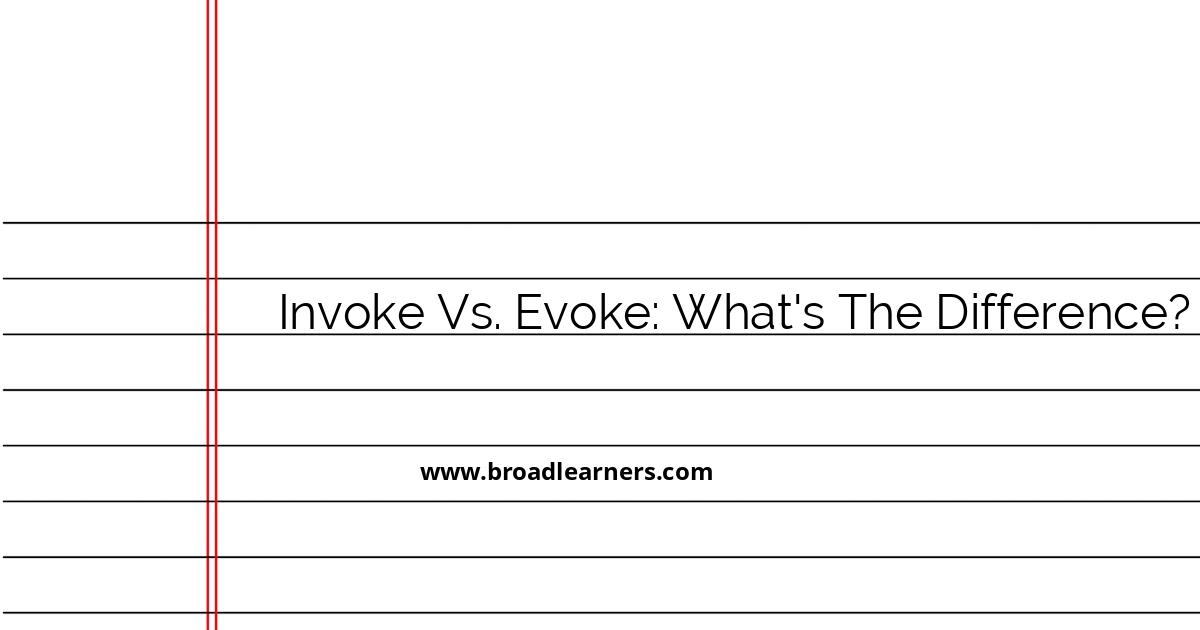The English language often presents words that seem similar yet have distinct meanings and uses. Two such words are 'invoke' and 'evoke'. Understanding the nuances between these words can greatly enhance your written and spoken communication skills. Let's delve into the differences between 'invoke' and 'evoke' with detailed explanations and examples:
- Invoke
-
The verb 'invoke' means to call upon something for support or assistance. It often refers to calling on a higher power, authority, law, or concept in a formal or ceremonial manner. In programming, it may also mean calling a function or procedure in code.
Examples:
- During the meeting, the manager invoked the company's policy to resolve the dispute.
- The priest invoked God’s blessing upon the congregation.
- In the code, we will invoke this function to process the data.
<dt><strong>Evoke</strong></dt>
<dd>
<p>The verb <strong>'evoke'</strong> means to bring a particular feeling, memory, or image to mind. It deals with mental reactions rather than formal or authoritative actions.</p>
<p><cite>Examples:</cite></p>
<ul>
<li>The old photograph <b>evoked</b> nostalgia for her childhood days.</li>
<li>The movie soundtrack <b>evoked</b> emotions of joy and sadness.</li>
<li>The artist's painting <b>evokes</b> a sense of tranquility and peace.</li>
</ul>
</dd>
Key Differences:
- Purpose: 'Invoke' is often used in a context that requires action or authority, while 'evoke' is used when describing feelings or memories.
- Context of Use: 'Invoke' is common in legal, religious, or formal situations, whereas 'evoke' is more common in emotional or imaginative contexts.
- Formality: 'Invoke' can be more formal given its authoritative connotations, whereas 'evoke' can be casual or formal, depending on the context.
Expounding with Examples:
1. Invoke in a Sentence:
The attorney invoked the Fifth Amendment to protect his client from self-incrimination.
This sentence demonstrates the formal and legal use of 'invoke,' where a constitutional right is being used as a safeguard.
2. Evoke in a Sentence:
The scent of fresh baked cookies evoked warm memories of her grandmother's kitchen.
In this sentence, 'evoke' is used to describe a sensory experience that triggers a fond memory, highlighting its usage in emotional contexts.
Understanding the factors that distinguish 'invoke' from 'evoke' will enhance your communication skills and help you express ideas more accurately. The context and intended meaning will guide which word you choose to use. These explanations and examples aim to help you grasp their meanings and uses clearly.

Did I miss anything? Respond below